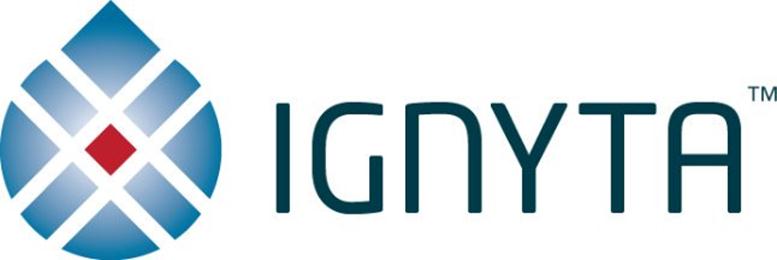Chagas disease, which is also known as American trypanosomiasis, occurs when you get infected with a small parasite called Trypanosoma cruzi. A doctor named Carlos RJ Chagas from Brazil discovered this parasite and how it causes illness in people way back in 1909.
BOSTON, April 16, 2024 /PRNewswire/ — The new research gives a complete picture of the Chagas Disease: American trypanosomiasis market. It looks at trends in the CD market, including how common it is in different regions, and talks about what’s happening in the market right now. The report also looks closely at the competition between different treatments. It focuses on treatments available across Latin America. Because many people with Chagas Disease don’t have enough money to buy medicine, there isn’t much demand for these products. That’s why pharmaceutical companies aren’t putting a lot of effort into creating new treatments for Chagas disease now.

Key Facts to Know About Chagas Disease: A Quick Overview
- About 6-7 million people, mostly in Latin America, have a bug bite disease called Chagas disease.
- It can be passed on by bugs, eating unsafe food, getting blood or organs from infected people, passing it from mother to baby, or accidents in labs.
- If treated early, Chagas disease caused by Trypanosoma cruzi can be cured. Treatment can also help stop the disease from getting worse and prevent passing it from mother to baby.
- Some people with long-term Chagas disease might have heart problems, and others might have stomach or brain issues. They might need special treatment for these.
- Ways to stop Chagas disease include controlling bugs in Latin America, checking blood before giv
ing it to someone, and testing and treating girls, women who can have babies, newborns, and brothers and sisters of infected moms who haven’t had treatment before.
The Transmission of Chagas Disease in the American Market: Key Insights
In Latin America, Chagas disease mostly spreads from poop or pee of blood-sucking bugs called kissing bugs. These bugs hide in cracks in houses and come out at night to feed on blood. When they bite, they often do it on the face. If someone scratches the bite and gets the poop or pee in their body, they can get infected with the parasite.
T. cruzi can also be transmitted by:
- If you eat or drink something with T. cruzi in it, like food or drinks with poop or pee from infected bugs or opossums, you can get sick. This often causes outbreaks where people get very sick, and some even die.
- When a mom who has Chagas disease gives birth, she can pass it on to her baby.
- Getting blood or something made from blood from someone who has Chagas disease can also give you the disease.
Signs and symptoms
Chagas disease has two phases. In the first phase, which lasts about 2 months, a lot of parasites are in the blood, but most people don’t have any symptoms or just feel a little unwell. Sometimes, people might see a spot on their skin or swelling around one eye. They could also have fever, headache, swollen glands, pale skin, muscle pain, trouble breathing, or pain in the belly or chest.
In the second phase, the parasites hide in the heart and stomach muscles. After one to three decades, about a third of patients have heart problems, and about one in ten have stomach issues. Over time, the infection can damage the nerves and heart muscles, causing heart problems, irregular heartbeats, heart failure, or sudden death.
Chagas Disease Treatment in the American Market
Chagas disease can be treated with medicines like benznidazole or nifurtimox to kill the parasite. These drugs work best if given early, especially during the first phase of the disease. Treatment can also help prevent the disease from getting worse. However, treatment can have side effects, and it’s not recommended for pregnant women or people with certain health conditions. In some cases, additional treatment may be needed for heart, digestive, or nerve problems caused by the disease.
Control and Prevention
In different places, the World Health Organization WHO (World Health Organisation) suggests various ways to prevent and control Chagas disease:
- Using bug sprays inside homes and nearby areas to kill insects and keep them away.
- Fixing up homes and keeping them clean to stop bugs from getting in.
- Using bed nets and practicing good hygiene when handling food, during transport, and storage to prevent infection.
- Creating easy-to-understand information and education programs for different situations and people about how to prevent the disease and use surveillance tools.
- Checking blood donors to make sure they don’t have the disease.
- Checking organ, tissue, or cell donors and recipients to make sure they don’t have the disease
Here are the top 5 key companies in the Chagas Disease (American trypanosomiasis) market along with brief descriptions:
- Bayer AG: A multinational pharmaceutical company known for its commitment to global health initiatives, including research and development of treatments for neglected tropical diseases like Chagas Disease.
- Sanofi S.A.: A leading pharmaceutical company with a focus on innovative treatments for various diseases, including neglected tropical diseases such as Chagas Disease.
- GlaxoSmithKline plc: A global healthcare company dedicated to developing vaccines and treatments for infectious diseases, including Chagas Disease.
- Novartis AG: A pharmaceutical company known for its research and development efforts in addressing unmet medical needs, including the development of therapies for neglected tropical diseases like Chagas Disease.
- Merck & Co., Inc.: A leading global healthcare company committed to developing innovative treatments and vaccines for a wide range of diseases, including Chagas Disease.
Directly Purchase a copy of the report with BCC Research.
For further information or to make a purchase, please get in touch with [email protected].
About BCC Research
BCC Research provides objective, unbiased measurement and assessment of market opportunities with detailed market research reports. Our experienced industry analysts’ goal is to help you make informed business decisions, free of noise and hype.
Contact Us
Corporate HQ: 50 Milk St. Ste 16, Boston, MA 02109, USA
Email: [email protected],
Phone: +1 781-489-7301
For media inquiries, email [email protected] or visit our media page for access to our market research library.
Data and analysis extracted from this press release must be accompanied by a statement identifying BCC Research LLC as the source and publisher.
Logo: https://mma.prnewswire.com/media/2183242/BCC_Research_Logo.jpg
SOURCE BCC Research LLC

Featured image: © healthhw






